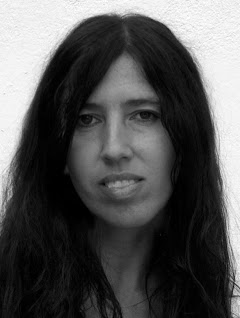Beat
I cover breaking news, politics, entertainment, and stories of daily life.
One Shot

“I don’t have just a favourite image, but a favourite series of images. I took them at a women’s prison, where I had originally gone to shoot a photo essay during my studies, and where I returned to take photos of imprisoned women with their children. Immersing myself in this story made me share their pain and their dreams, and see the world from their point of view. I need to tell the story of these women and their children in order to understand them.”
Profile
When I was little, my father bought a reflex camera back from Europe, and with it he passed his love of photography on to me. Years later, I began my professional studies with that camera.
In 2002 I was working for an ad agency, and I began a photography course as if it were just a hobby. I soon realised that wasn’t the case. I began going to classes four times a week. Two years later, a teacher who knew my penchant for documentary photography recommended that I join the Association of Graphic Journalists of the Republic of Argentina (ARGRA)
When I went to find out about ARGRA, at the entrance of the building there was a display of student photos of the festival of San Cayetano. One picture really caught my attention. It showed a priest giving a woman confession as both sat on chairs placed on the pavement of an ordinary street. Behind them was a hot dog stand, with people standing around and eating, completely cut off from any kind of religious feeling. I felt that the picture wasn’t just about religion; it was about authenticity. The image was honest, profound and had documentary value. Looking at it, I thought: I want to be a photojournalist.
The year I began studying photojournalism we had to create a photo essay for the end of the year, and I decided to make mine about a women’s prison. The essay helped me understand that journalism, writing and photography were incredible tools. Through my images, I was able to really get involved, to feel, to communicate and to lend a voice to a place where normally there was – and still is – silence. I understood that photography could help create a social conscience.
On my last assignment for Reuters, I went back to find these same women five years later, closing the circle on this story. After five years had passed, I was a mother myself and that made me view the issue from a much deeper perspective, woman to woman, mother to mother. These women allowed me to see the very depths of their lives, their fears, their needs, and their motivation. And they made me wonder – what would my life have been like in their place?
I am excited to cover stories about people’s lives, because they allow me to go deeper into a subject and understand ways of living that are different from my own.
My biggest lesson has been to lose all prejudice. Photojournalism has made me come into contact with different realities, and understand them, not judge them.
The people I admire most are the ones who are most marginalised, because in many cases they don’t get any respect and are victims of prejudice.
Behind the Scenes

